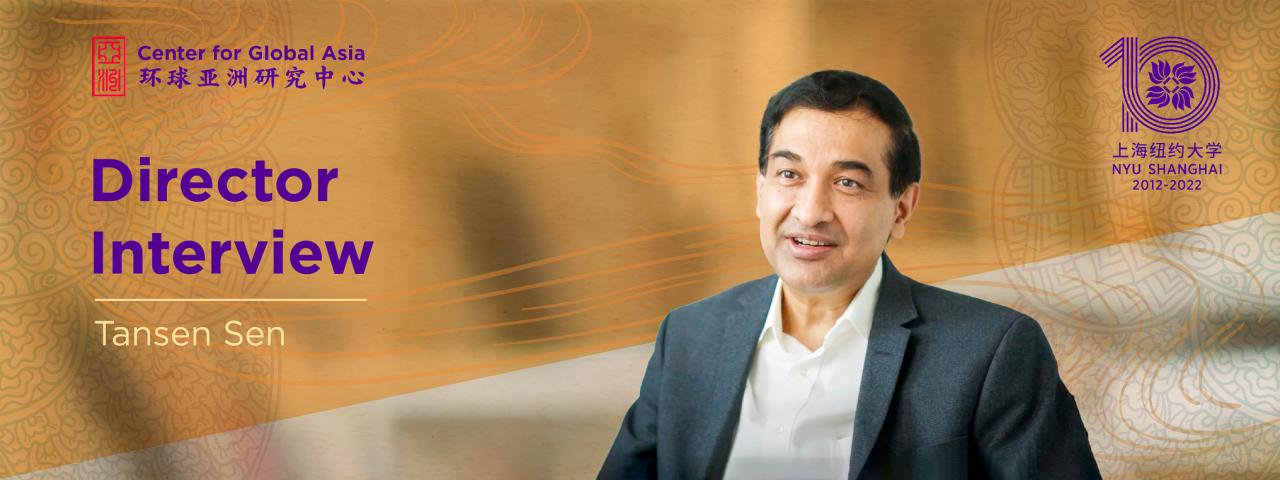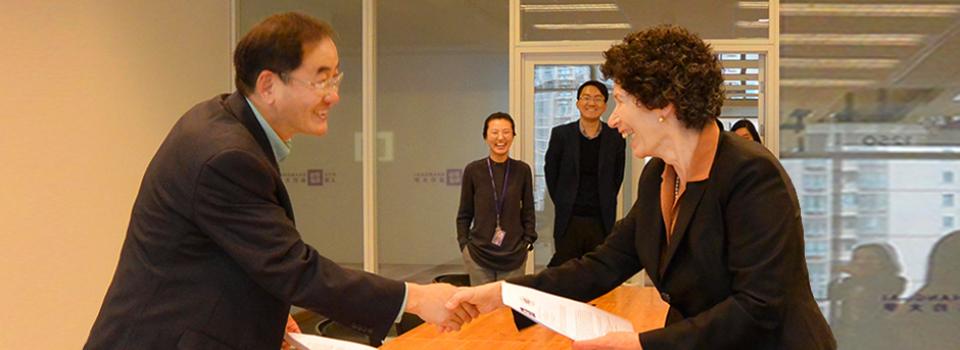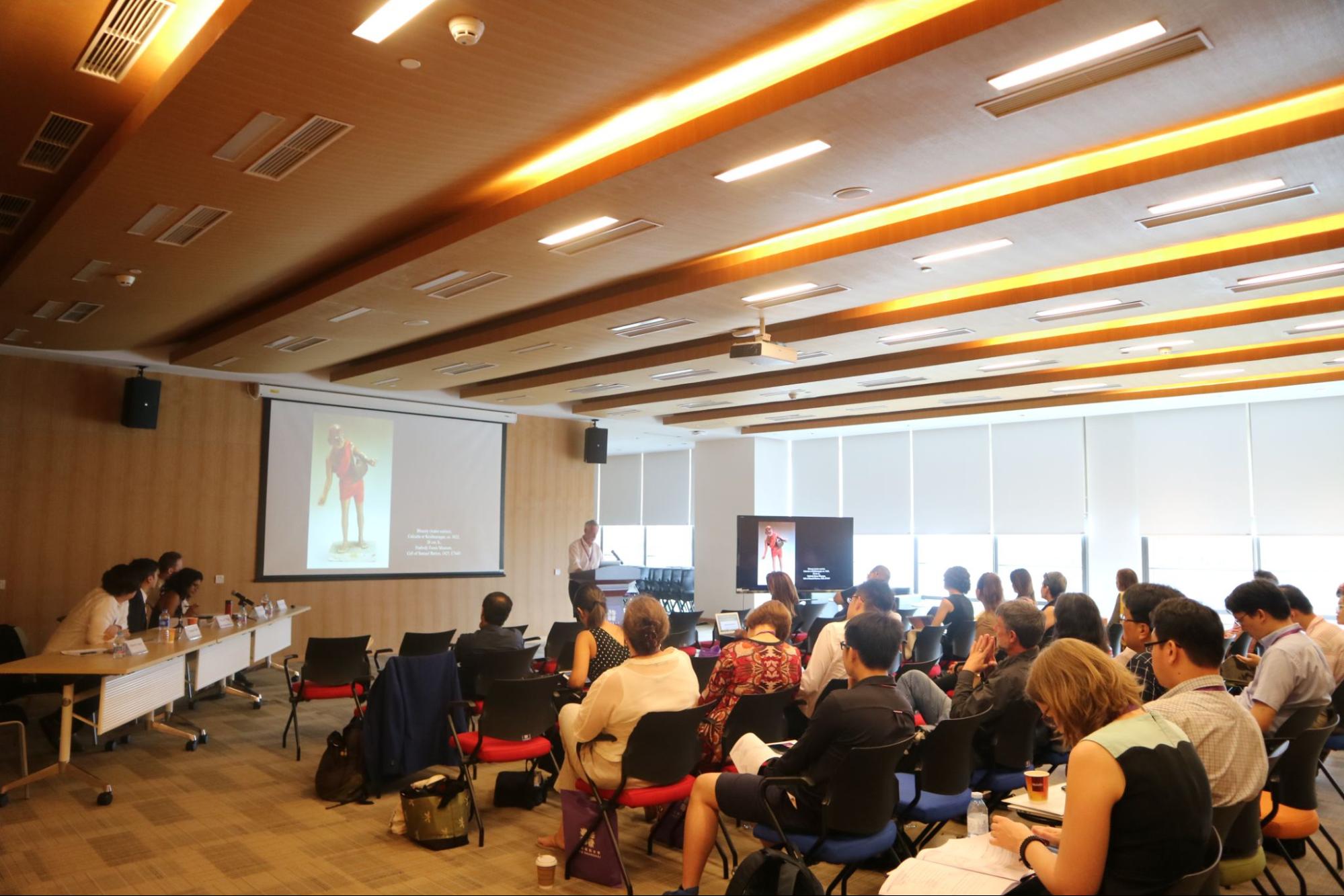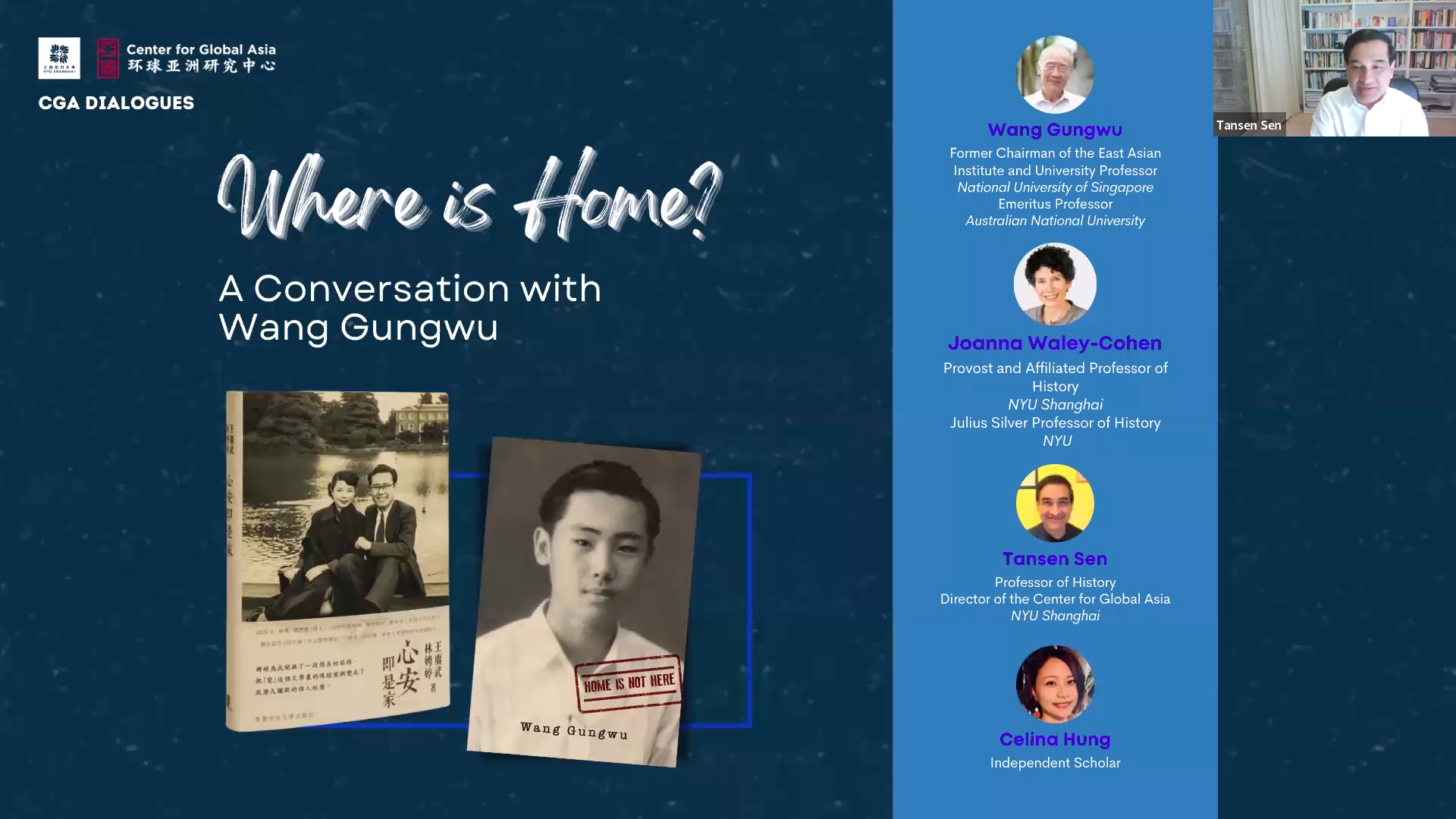
Since 2015, NYU Shanghai’s Center for Global Asia has brought together researchers, scholars, and students to investigate the study of Asia in the international hub of Shanghai. Director of the Center, and Professor of History Tansen Sen sat down to talk with us about the Center’s history, future goals, and some of the exciting projects and collaborations they’re working on.
In the 8 years since the founding, what has the Center’s mission been? What are some of your goals for the Center?
We think that the idea of Asia pertains to not only the physical place that is the Asian continent, but also the entanglement of Asian people, objects, and ideas from the region with different parts of the globe. Since the Center’s establishment, we have been engaged in a number of events and research projects that relate to this broader conceptualization of Asia. We have hosted annual conferences, organized lecture series and webinars, developed courses and international summer schools for graduate students and postdoctoral fellows, recruited postdoctoral fellows and invited renowned visitors, such as the novelist Amitav Ghosh, and received prestigious research grants.

2018 Indian Ocean Summer School participants at China Maritime Museum, Shanghai, China. Photo by Yiyun Chen
Who makes up the Center? Who do you find yourself collaborating with?
I am a historian and the director of the Center, and we have about fifteen additional affiliated faculty from the Humanities, Social Sciences, Global China Studies, and Interactive Media Arts programs at NYU Shanghai. We currently have three postdoctoral fellows, and sometimes also host doctoral fellows. We also have visiting scholars who come from institutions around the world. We regularly hire undergraduate interns from NYU Shanghai and other universities in China to work on our database projects and help organize our diverse events. Two staff members oversee the management of the Center’s activities, collaborations, and fellows. In addition, we collaborate with NYU and NYU Abu Dhabi; we have also developed strong networks with other institutions, both locally and internationally, which I view as one of the biggest strengths of the Center. In particular, we have collaborated with Tsinghua University, Peking University, Fudan University, Harvard-Yenching Institute, and universities in Singapore, Hong Kong, and Germany.

On May 10, 2016 at NYU Shanghai, Professor Joanna Waley-Cohen, Provost for NYU Shanghai and Professor Jin Guangyao, Director of Asia Research Center at Fudan University, signed the memorandum on behalf of Asia Research Center (ARC) at Fudan University and The Center for Global Asia (CGA), respectively, to promote the field of Asian Studies in China. Photo by CGA staff
What major projects is the Center undertaking right now? How do you engage and collaborate with other NYU campuses around the world?
In 2018, the Global Asia Studies centers at NYU, NYU Abu Dhabi, and NYU Shanghai received a three-year grant from the Henry Luce Foundation to study “Port City Environments in Global Asia.” NYU Shanghai’s project has focused on the examination of Indian Ocean port cities and coastal regions. We have organized workshops and published essays that have explored the internal dynamics and external connections of Indian Ocean port cities. More recently, after the grant was renewed for another three years, we have been studying the environmental impact of infrastructure development projects on port cities and coastal communities. One of our key research undertakings is on the Belt and Road Initiative (BRI) in Asia and Africa. In collaboration with researchers from the University of Virginia and Hong Kong University, we are working on a database project that includes collecting publication data, creating timelines, and interviewing various stakeholders within and beyond China.

CGA Annual Conference 2017. Photo by CGA staff

CGA Dialogues | Where is Home? A Conversation with Wang Gungwu, Zoom Webinar Event on Jan 28, 2022. Screenshot by Haozhe Li
What are you looking forward to in the Center’s future?
As we enter into the second decade of NYU Shanghai, I am looking forward to our Center focusing even more on research output, database development, and curricular integration. Additionally, the past two years of the pandemic have forced us to use digital platforms and engage with global audiences through virtual events. The Center currently manages two academic journals and contributes to one of the largest circulating academic newsletters. We plan to expand into Chinese-language publications in the next decade. In the next two or three years we hope to complete our three ongoing database projects. These projects are on Asian Studies in China, the Belt and Road Initiative, and China-India interactions. With faculty from the Social Sciences and Humanities programs at NYU Shanghai we are trying to develop a graduate program in Global Studies; and with our partners in Abu Dhabi and New York we are discussing ways to introduce a Global Asia track within NYU Abu Dhabi’s planned PhD program in Global Crossroads. To expand our global presence and outreach we will be co-organizing two international conferences in Singapore in 2023. The first will be the inaugural biennial conference on China-India studies and second will focus on maritime heritage in the Indian Ocean world. Also in 2023, pending our grant application, we hope to organize a conference on “Asia and the Mediterranean World” at NYU Florence. We are also looking into developing our digital humanities scholarship further (like in this VR Gallery). At the new Qiantan campus, we will have a CGA Digital Heritage Lab where we hope to develop resources to do various kinds of story maps, offer workshops, and create platforms to present research visually that will attract more general audiences and involve students in accessible ways.
For more information about the CGA, follow the Center for Global Asia on Twitter, Facebook, the YouTube channel, or subscribe to the newsletter.

